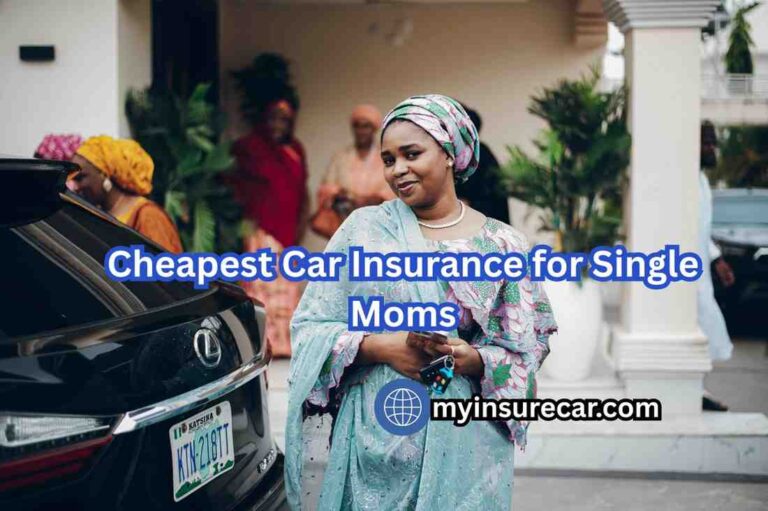This is the most comprehensive guide on how to sell car insurance. In this guide, you will learn everything you need to know about the art of selling auto insurance.
This guide offers practical, actionable steps to help you make successful car insurance sales and build lasting client relationships. Moreover, we will discuss the techniques of selling car insurance in different states. So, let’s dive in.

Understanding The Basics Of Car Insurance
Why Car Insurance Is Essential For Clients?
Auto insurance is not merely a legal requirement; it helps protect from specific incidents like theft, damage, and car accidents. So, by looking at this scenario, when a client understands its value, he is more likely to purchase insurance without looking at it from a legal perspective.
This way, you can educate your client on the importance of auto insurance and get more sales. Effective communication skills are required to boost sales and get more sales and customers. The question is: how can you learn those skills to attract clients? Don’t worry. You will know them right here.
Key Terms Every Insurance Agent Must Know
Every agent must know some common insurance terms. Explaining these terms in simple language builds trust. Clients appreciate agents who help them clarify complex jargon and make informed decisions.
Here are three standard terms to understand. Premiums, deductibles, and coverage limits.
- Premiums: The monthly or yearly pay to maintain an insurance policy. They are calculated based on age, location, vehicle type, coverage limits, etc.
- Deductibles: The amount paid out-of-pocket when filling a claim. Deductibles reduce premiums but increase upfront costs.
- Coverage limits: The maximum amount an insurance policy pays for a covered loss.
You might interested: Does Having a CDL Lower Car Insurance?
Why Selling Car Insurance Is Profitable
Benefits Of Working In The Insurance Agency
Working in the insurance industry offers commissions and bonuses based on performance. Its demand is constant because it is a stable industry. Additionally, It provides opportunities for growth and job security.
How Car Insurance Sales Can Be Profitable
With each policy you sell, you earn a 5% to 15% commission. Additionally, if you sell bundled policies like auto and home insurance combined, you can increase earnings and retain clients for a long time.
So, if you have decided to work in this industry, look no further; you are on the right track.
Knowing Your Target Audience
Identifying Different Types of Customers.
You should always remember that every client has unique needs and choices. For example, young drivers might prefer affordability when choosing a policy, while families will choose comprehensive coverage.
Identifying your target audience will help you focus on what each group is looking for, from affordability for younger customers to extensive coverage for clients with families.
Tailoring Your Sales Approach To Meet Specific Needs
Your sales approach should be based on your clients’ tastes. Now, what does this mean? Well, give priority to security and peace of mind for families. They are more concerned about their mental peace and security.
On the other hand, younger customers might appreciate roadside assistance and cost-effective premiums. A tailored approach shows clients that you’re genuinely interested in providing the best solution for them.
Building Trust And Credibility In Car Insurance Sales
Establishing Rapport And Trust With Clients
Building trust among your customers makes them more likely to buy from you. Trust is the foundation of any sale, especially in insurance. Ask open-ended questions and solve their concerns and queries.
The more you engage with your clients, the more they feel respected and understood, which can boost your sales.
Techniques To Build Credibility
Credibility comes from transparency. Use testimonials, clearly explain the policy’s pros and cons, and ensure clients know they can reach out with questions. Over time, these efforts build a strong reputation and can lead to more referrals.
Different Types Of Car Insurance Coverage
Liability Insurance Explained
Liability insurance covers damages caused by the insured to others in accidents. It protects clients from out-of-pocket expenses in the event of an accident.
Collision And Comprehensive Coverage
Collision insurance covers damages from car accidents, while comprehensive coverage covers incidents caused by natural disasters and theft. It is wise to explain these terms to your customers so they will understand why comprehensive coverage is a reliable investment.
Additional Coverage Options For Well-Rounded Policy
It can make a big difference if you offer extras like uninsured motorist coverage, which covers damages caused by uninsured drivers, or rental compensation. These favors can provide clients peace of mind in all situations and make a policy more attractive.
Essential Sales Techniques For Insurance Agents

The Power Of Active Listening
Active listening helps agents understand customers’ concerns and can build trust. Don’t just try to think about your next question; focus on what the customer is saying. Listen to their queries carefully and solve their problems. Clients appreciate friendly manners.
Consulting With Clients To Find The Right Policy
Customers look for guidance, not just buying directly without any information about the policy. As an agent, you should ask about their specific needs, budget, and lifestyle to recommend suitable policies based on their needs. This type of approach can create a more supportive and personalized experience.
Asking Insightful Questions To Understand Needs
You want to earn your client’s trust. You must understand factors that help you meet their needs to do this. Ask questions like “What’s your biggest concern with auto insurance?” “Which policy do you like personally?”. These types of insightful questions can lead to building trust and making customers feel more comfortable.
Also check: Can You Insure An Unregistered Car?
Utilizing Digital Tools And Social Media In Sales
Why Digital Tools Are Essential in Modern Sales
Certain digital tools, such as CRM (Customer Relationship Management) software, marketing automation platforms, email marketing, and digital quoting, can help you generate more sales. Using these tools effectively can expand your reach and boost sales.
Additionally, these tools can enhance customer satisfaction, improve sales forecasting, reduce cycle length, and much more.
Social Media Techniques to Grow Your Customer Base
Social media has become a powerful sales platform in this modern era. Consider sharing helpful tips and live Q&A sessions each week to engage with your clients. This way, you can answer common insurance questions and solve problems.
This approach is beneficial in many ways. It helps clients solve their problems easily. Moreover, it can build trust with customers, which boosts your success.
Personalizing Your Sales Pitch
The Benefits of Customizing Policies
Customizing policies is essential in generating sales. Each customer has unique needs. Offer discounts and unique coverage options based on the client’s situation. This way, your client will feel valued and respected, and they will prioritize you over your competitors.
Communicating Personalized Value to Clients
Explain to clients how their customized policy will benefit them specifically. Whether it’s lower costs or added coverage, a clear explanation of why the policy suits them is crucial to closing the deal.
Highlighting the Benefits of Bundling Insurance Policies
Clients often look for saving expenses. Help them out by explaining to them the benefits of multiple policies like home insurance and life insurance bundled with auto insurance. Highlighting these savings can be a strong selling point.
Tell them how convenient it will be to choose bundled services instead of one. Clients may find it appealing to get one bill, one policy, and one point of contact. Focus on persuading them how this convenience can make insurance management easier.
Additionally, with bundled policies, clients will only need to deal with one insurance company, leading to simplifying the claims process. This will reduce paperwork, accelerate claim resolution, and streamline communication.
Read about: Used Car Dealership Insurance Cost
Overcoming Common Objections
Sometimes, clients may find auto insurance too costly. Effectively handle cost objections. Persuade them by explaining the benefits of being insured. If they do not buy insurance, it will cost them more expenses and burden them.
Moreover, clients may complain of paying for unnecessary extras and not getting enough coverage. In that scenario, it is important to tell them the policy details you offer. Explain each feature of your policy and how it will help them based on their needs.
Offer customization and discounts. Tailor your policies to meet individual needs. If customers find your services reliable and trustworthy, they will continue to buy. That way, you can stand out from the rest.
Following Up with Leads
Following up is simply the process of engaging with persons who have shown interest in your product or service but haven’t yet converted into sales. It helps you boost your services and sales, build trust and rapport, and encourage decision-making.
Types of follow-ups
- Phone calls
- Emails
- Text messages (SMS)
- Social media messages
- In-person meetings
The question is: how do you follow up with leads in a professional way? Let’s discover.
A timely follow-up can make a big difference. Send a friendly reminder after an initial conversation. Respect their decision-making. Track interaction and adjust approach. Consistent, helpful follow-ups build trust. Offer value without a hard sell by sharing tips or articles related to auto insurance, helping clients see you as a useful resource rather than a pushy salesperson.
Example script: “ Hi David, wanted to check if you had any questions about our auto insurance policy.”
Special Discounts and Promotions
Different Types of Discounts to Offer
Highlight discounts like safe-driver, multi-car, and renewal discounts. Clients are always looking to save, and understanding that available discounts can increase their likelihood of purchasing.
How to Leverage Seasonal Promotions
Consider running promotions around tax season, holidays, or back-to-school times. Seasonal promotions add urgency, encouraging clients to take advantage of limited-time offers.
Mastering the Art of Closing
Recognizing When to Close
Clients give subtle signals when they’re ready to buy, such as nodding or asking more specific questions about policy details. Recognizing these cues allows you to close naturally and confidently.
Effective Trial Closes
Using phrases like, “Does this sound like the type of protection you’re looking for?” gives clients a chance to affirm their interest, making the closing process smoother and less pressured.
Providing Exceptional After-Sales Support
Importance of After-Sales Service
Good after-sales service reinforces trust and encourages clients to stay with you. Follow up after the sale to answer questions and ensure they’re satisfied with their coverage.
Building Client Loyalty for Renewals and Referrals
Satisfied clients are your best promoters. By offering ongoing support and checking in on policy anniversaries, you increase the likelihood of renewals and gain valuable referrals.
How To Sell Car Insurance In Different States
How to Sell Car Insurance in Florida
Navigating Florida’s No-Fault System
Florida operates under a no-fault insurance system, meaning each driver’s insurance pays for their injuries regardless of fault. Minimum requirements include:
- $10,000 in personal injury protection (PIP)
- $10,000 in property damage liability (PDL)
Florida-Specific Sales Strategies
Florida’s unique insurance laws can confuse clients, so emphasize education and transparency:
- Educate on PIP: Explain how PIP coverage works and why it’s essential for medical costs.
- Highlight Hurricane Protection: Given Florida’s weather risks, additional comprehensive coverage can be very appealing.
- Promote Seasonal Coverage Adjustments: With many seasonal residents, offer flexible policies that can adapt to part-time residents.
How to Sell Car Insurance in Texas
Emphasizing Liability Coverage in Texas
Texas has one of the highest minimum liability coverage requirements in the U.S., with the 30/60/25 rule:
- $30,000 for injuries per person
- $60,000 per accident for multiple injuries
- $25,000 for property damage
Sales Tactics for the Texas Market
In Texas, where many families own multiple vehicles and often drive long distances:
- Discuss Comprehensive Coverage: Comprehensive policies that include collision and liability appeal to Texas drivers who want complete protection.
- Highlight Family Discounts: Many Texans have multiple vehicles; offering multi-car discounts can be a significant draw.
- Promote Bundling Options: With Texas homeowners facing weather risks like hail, combining home and auto policies can be an appealing financial solution.
How to Sell Car Insurance in California
Understanding California’s Insurance Market
California previously had unique requirements for car insurance, including minimum liability limits. However, effective January 1, 2025, the minimum liability limits have been increased to:
- $30,000 for injury/death to one person
- $60,000 for injury/death to more than one person
- $15,000 for property damage
Strategies for Selling in California
Since California is a car-centric state with high vehicle insurance rates, clients often seek affordability and compliance. To succeed:
- Highlight Discounts: California drivers appreciate multi-policy discounts and safe driver benefits.
- Offer Green-Friendly Policies: California residents are environmentally conscious, so eco-friendly or low-mileage policies can appeal to this market.
- Explain the Benefits of Underinsured Motorist Coverage: California has many uninsured drivers, so this coverage provides peace of mind in an accident.
How to Sell Car Insurance from Home
Adapting to Remote Sales
Remote selling offers flexibility and a broader reach, allowing you to sell to clients from anywhere with internet access. To excel from home:
- Invest in Quality Technology: A high-quality computer, reliable internet, and a good headset will improve client interactions.
- Leverage Video Calls: Video conferencing tools like Zoom allow for face-to-face interactions that build trust.
- Use CRM Systems: Customer Relationship Management (CRM) software helps organize client data and set follow-up reminders, streamlining the sales process.
Building Trust Virtually
Create a professional and approachable virtual presence. Encourage clients to ask questions, share personalized quotes, and follow up with an email recap of your conversation to keep the interaction memorable.
Read Also: Bike vs. Car Insurance
How to Sell Rental Car Insurance
Understanding the Role of Rental Car Insurance
Rental car insurance is unique; it’s a short-term policy covering potential damages to rented vehicles. Rental insurance is typically needed by travelers or those whose primary insurance doesn’t extend to rentals.
Tips for Selling Rental Car Insurance
- Identify the Client’s Needs: Travelers may want full coverage, while local renters may only need liability.
- Explain Key Coverage Types: Collision Damage Waiver (CDW), liability, and personal accident insurance are primary types of rental insurance. Clarify which option best fits their situation.
- Highlight Peace of Mind: Emphasize the hassle-free aspect of rental insurance, covering unexpected costs while traveling.
Learn more: Selling car insurance
How Hard Is It to Sell Car Insurance?
Challenges in Car Insurance Sales
Selling car insurance has its challenges, especially when dealing with clients who are skeptical of policies or concerned about costs. Some difficulties include:
- Building Trust in a Competitive Market: Many clients are price-sensitive and shop around, so distinguishing yourself through exceptional service and transparency is essential.
- Navigating Complex Insurance Terms: Clients often find insurance terminology confusing, which requires you to be clear, patient, and thorough in your explanations.
- Managing High Expectations: Clients sometimes expect lower premiums or extensive coverage without considering trade-offs. Align their expectations by explaining the value behind each level of coverage.
Factors that Make Selling Car Insurance Rewarding
While selling car insurance can be challenging, it also offers significant rewards:
- Flexible Income Potential: Many agents work on commission, allowing for a scalable income based on effort and success.
- Customer Relationships: Building long-term relationships with clients leads to repeat business and referrals.
- Helping Clients Feel Secure: Offering clients peace of mind and financial protection is highly rewarding, knowing you’re helping them stay covered in difficult situations.
Conclusion
Selling car insurance is a rewarding journey that goes beyond making a sale. It’s about building trust, understanding clients’ needs, and providing valuable solutions. By following these tips, you can strengthen your sales approach, build lasting relationships, and achieve long-term success in car insurance sales. Whether selling over the phone, online, or in person, building strong relationships and offering tailored solutions help foster trust and ensure clients feel confident in their insurance choices.
FAQs
How can I handle price objections when selling car insurance?
Emphasize the long-term value and financial security of car insurance and explore discounts that can help meet their budget.
What’s the best way to follow up without being too pushy?
Use friendly check-ins and provide value in follow-ups, such as sharing helpful information rather than just pushing for a decision.
How can I attract younger clients to car insurance?
Highlight affordable plans, offer add-ons like roadside assistance, and use social media for engagement.
What’s the benefit of bundling insurance policies?
Bundling saves clients money and simplifies their insurance management, making it an attractive option for many.
How important is digital marketing in car insurance sales?
It’s essential, as digital tools and social media provide broader reach, lead generation, and a modern approach to customer engagement.




[…] You might interested in: How To Sell Car Insurance […]
[…] Also Check: How To Sell Car Insurance […]
[…] Hi, I’m Luke. I’ve spent years helping people navigate the ins and outs of car insurance. […]